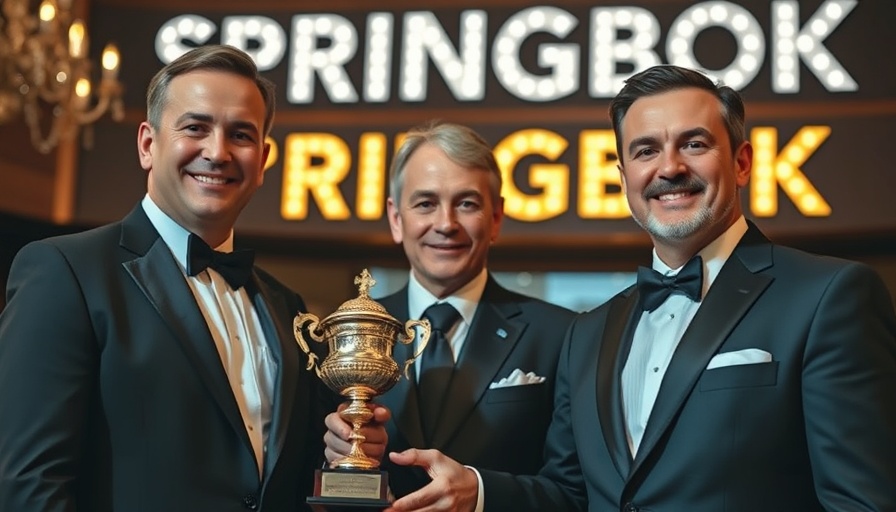
FNB Takes Center Stage in Springbok Rugby
The dynamic world of South African rugby has just undergone a significant transformation with FNB stepping into the spotlight as the prime sponsor of the Springboks. This landmark deal shifts the iconic FNB logo from the shoulder to the front of the Springbok jersey, marking a proud moment not only for the bank but for the entire rugby community.
Expanding Partnerships in Rugby
In an strategic move, FNB’s partnership extends beyond the national men’s team to include the women’s sevens teams, youth teams, and all age groups within the Springbok family. This comprehensive sponsorship echoes the growing inclusion within South African sports, providing crucial support to our female athletes and younger athletes alike.
The Significance of Branding in Rugby
Rian Oberholzer, CEO of SA Rugby, emphasized the importance of such partnerships, stating that “FNB has been an outstanding partner to the Springboks and rugby for many years.” This illustrates a deep-rooted relationship built on trust and mutual growth, serving as a blueprint for future collaborations in sports. The partnership enhances the Springbok jersey's brand value significantly, which has risen dramatically from approximately R30 million in 2016 to around R300 million today.
Impact of the Springbok Jersey in Global Sports
The Springbok jersey has become a coveted space for branding, particularly since the hiring of Rassie Erasmus as head coach in 2018. Under his leadership, the team has not only clinched two Rugby World Cup titles but has evolved into a prominent brand that international companies want to be associated with. This is a stark contrast to the jersey’s past struggles, symbolizing a rebirth for South African rugby.
FNB’s Commitment to Social Responsibility
This sponsorship marks more than just a logo placement; it represents FNB’s commitment to social responsibility in sports. By supporting all levels of rugby, the bank contributes to youth development and sports transformation, vital to the ongoing progression of South African athletics. This partnership could act as a catalyst for other brands to follow suit, driving further investment into sports across the nation.
Excitement Builds for Upcoming Matches
Fans can look forward to seeing the FNB logo on the Springbok jersey for the first time on July 5th during their match against Italy in Pretoria. This event not only excites rugby fans but also creates historical significance, as it signals a new era for both FNB and South African rugby. Enthusiasm is palpable as everyone, from players to fans, prepares for this momentous occasion.
Looking Toward the Future of South African Rugby
The partnership will surely enhance the sporting culture in South Africa and offer new opportunities for local talent to shine. As we look toward the Rugby World Cup and beyond, the implications of this deal could lead to further growth in the sport, increased visibility for female athletes, and ultimately a more robust national identity through sports.
Join the Conversation
In a world where sports and brand partnerships shape how we view athleticism, the FNB and Springbok collaboration stands out. It is a testament to what can be achieved when business supports grassroots movements, ultimately enriching the fabric of South African sports culture. Join the conversation and support your teams as they embark on this exciting journey!
 Add Row
Add Row  Add
Add 




Write A Comment